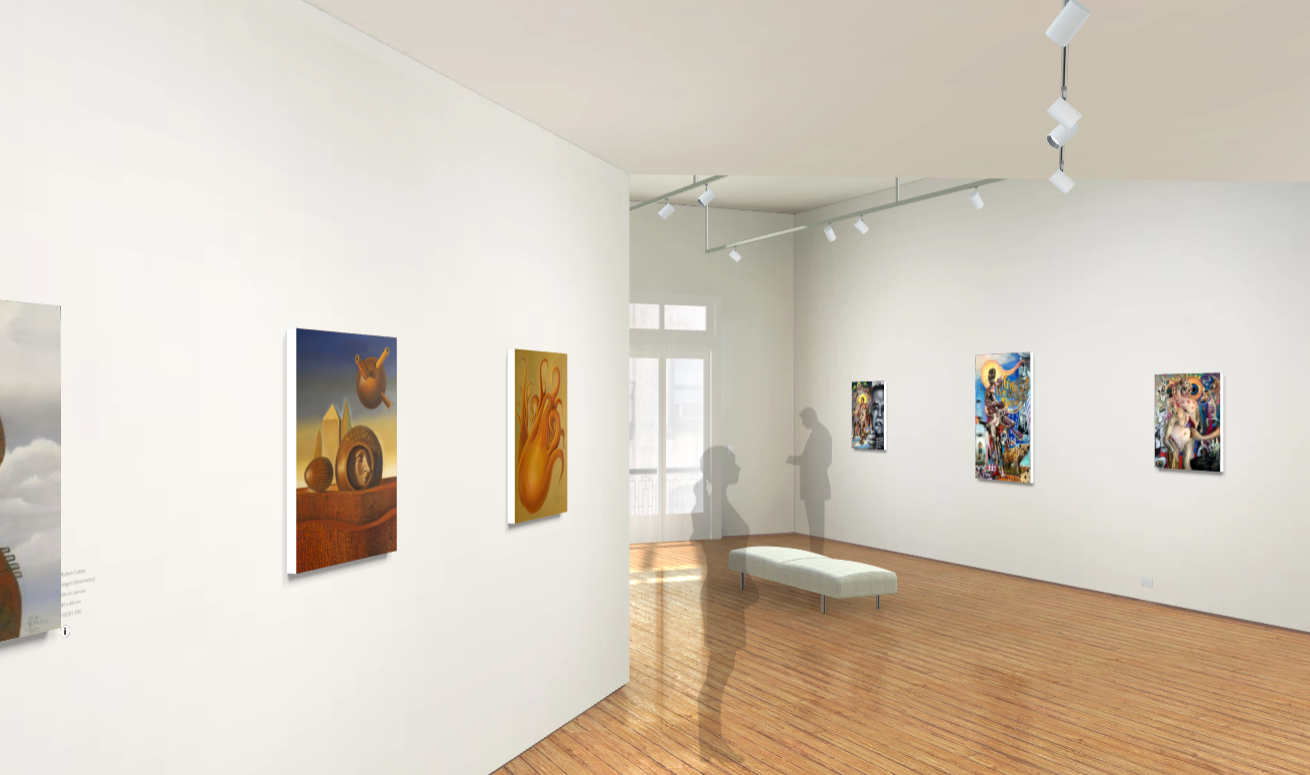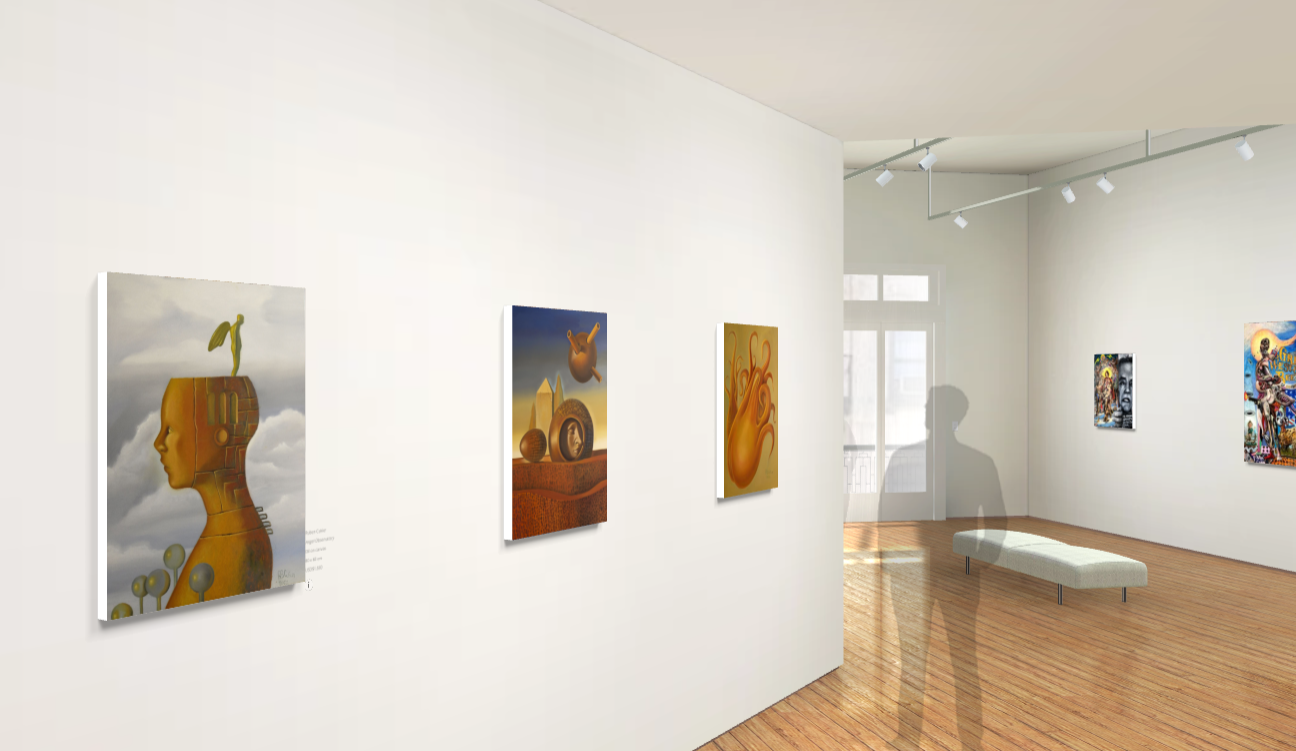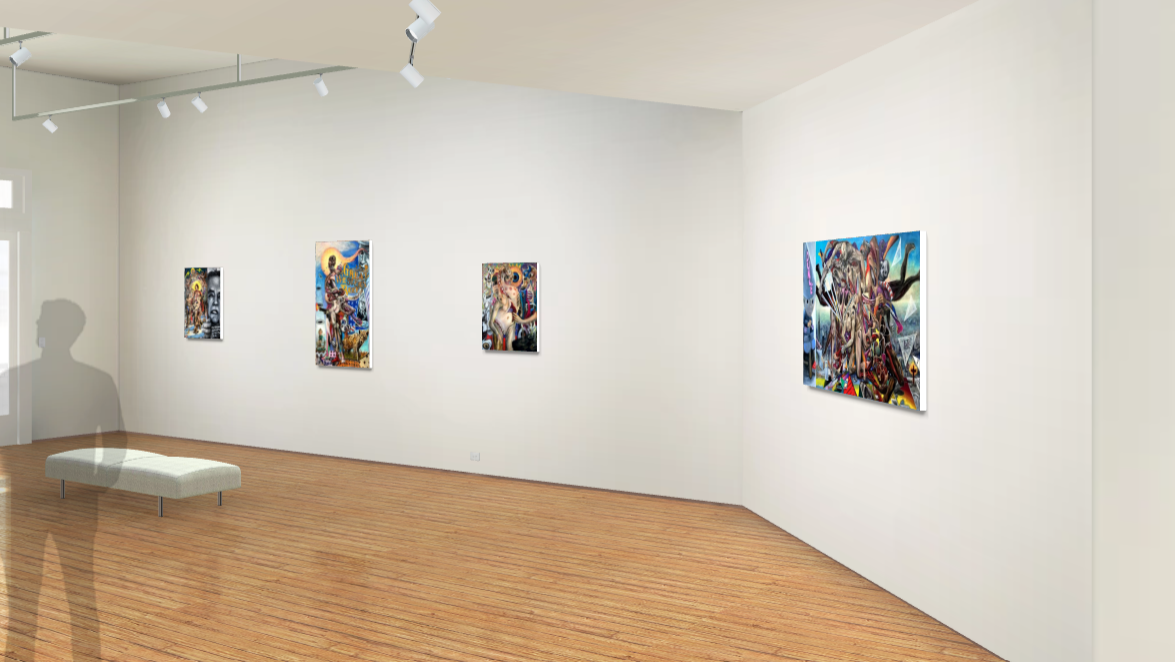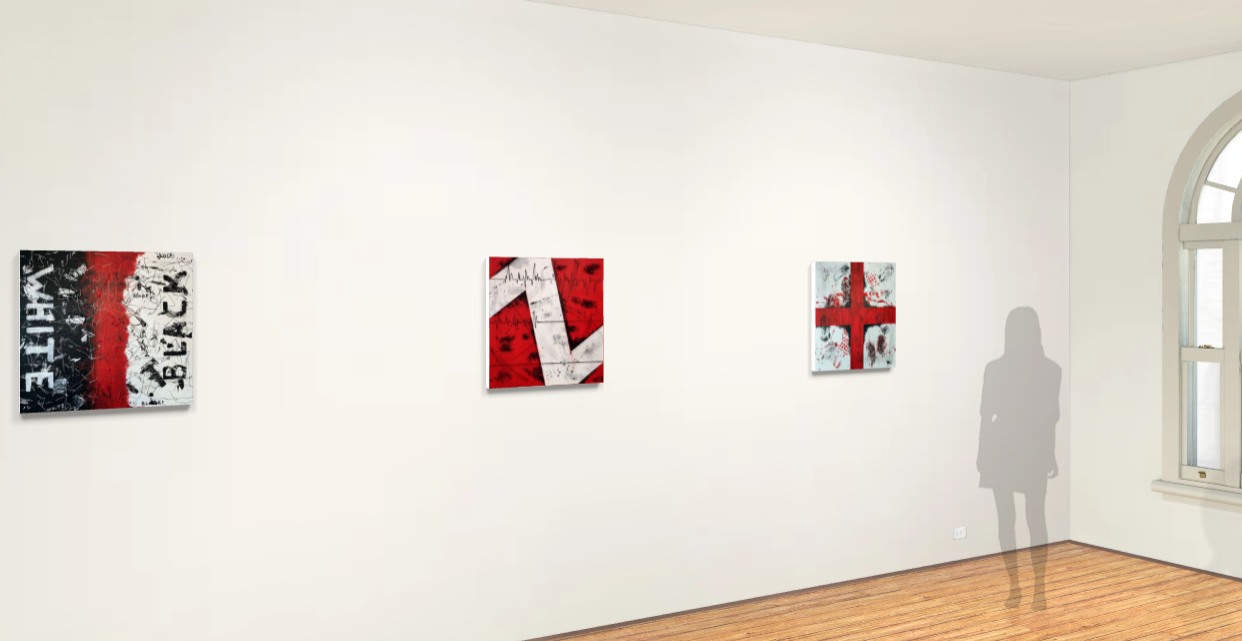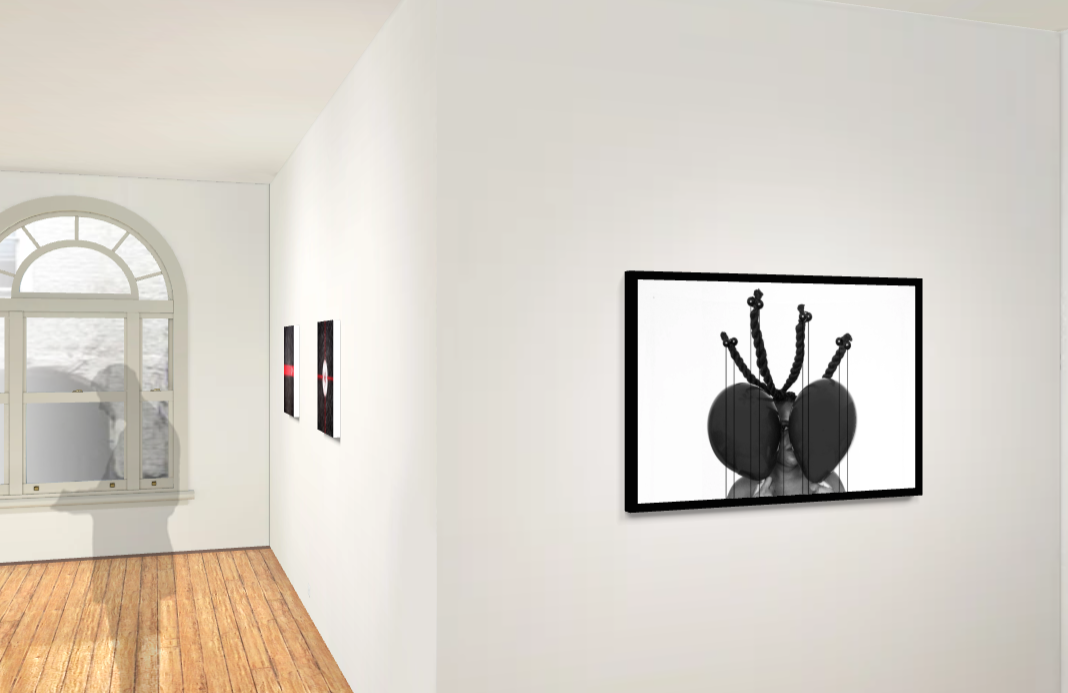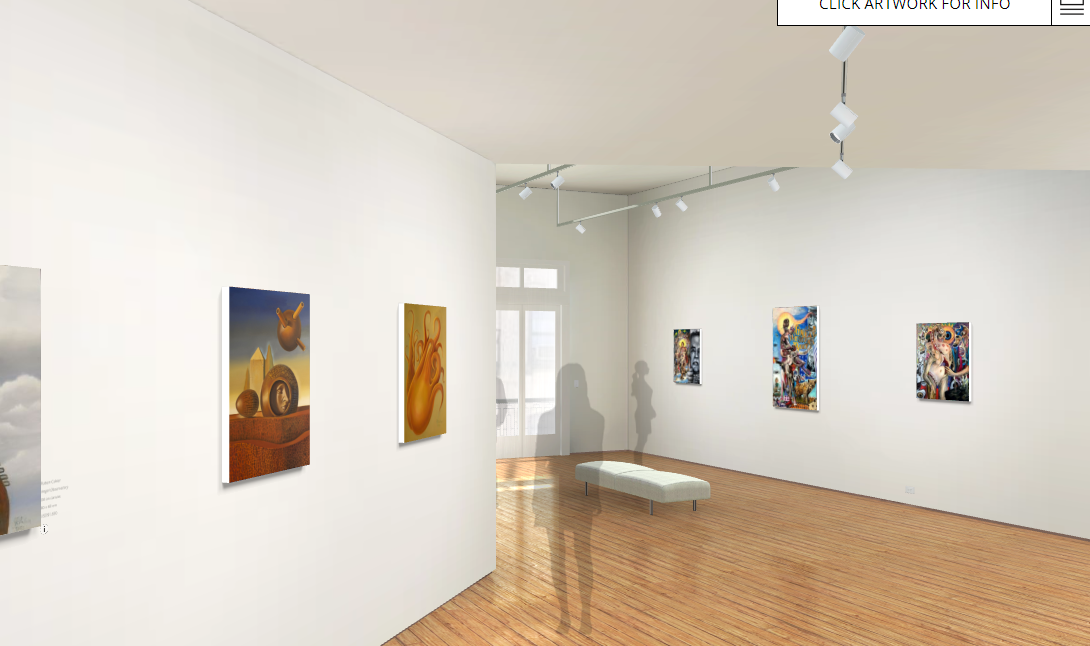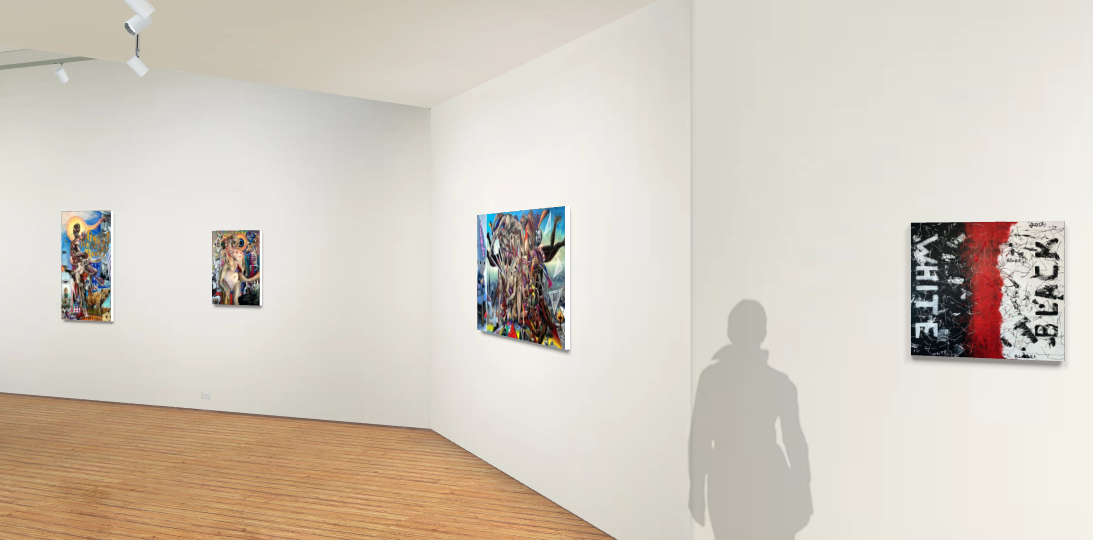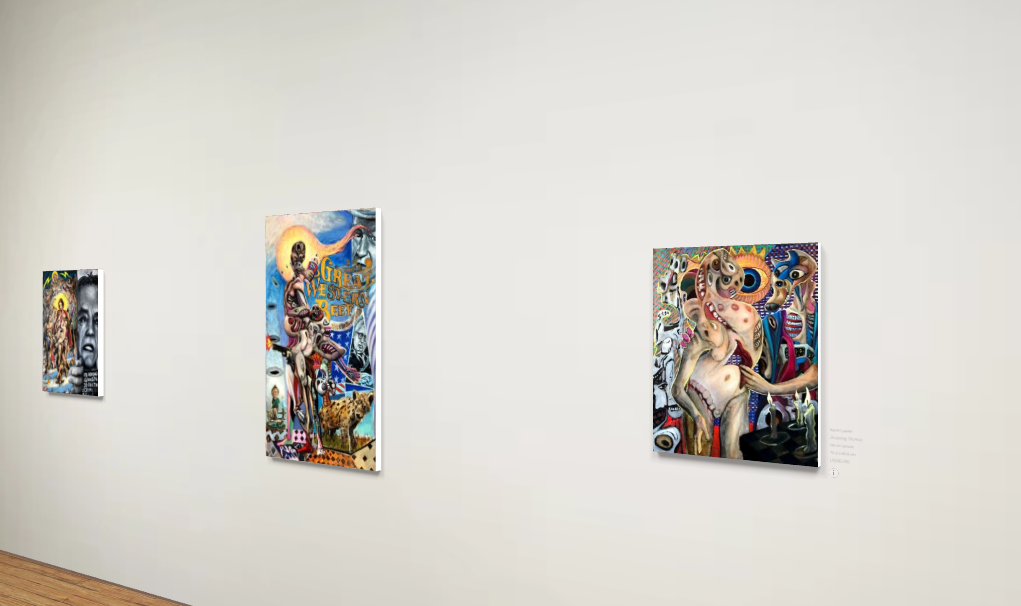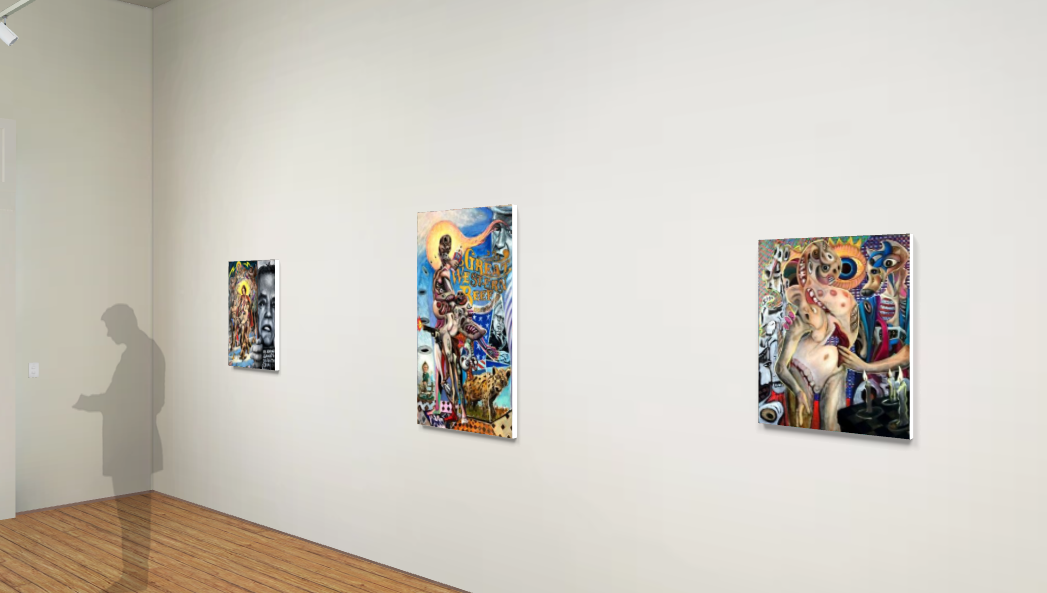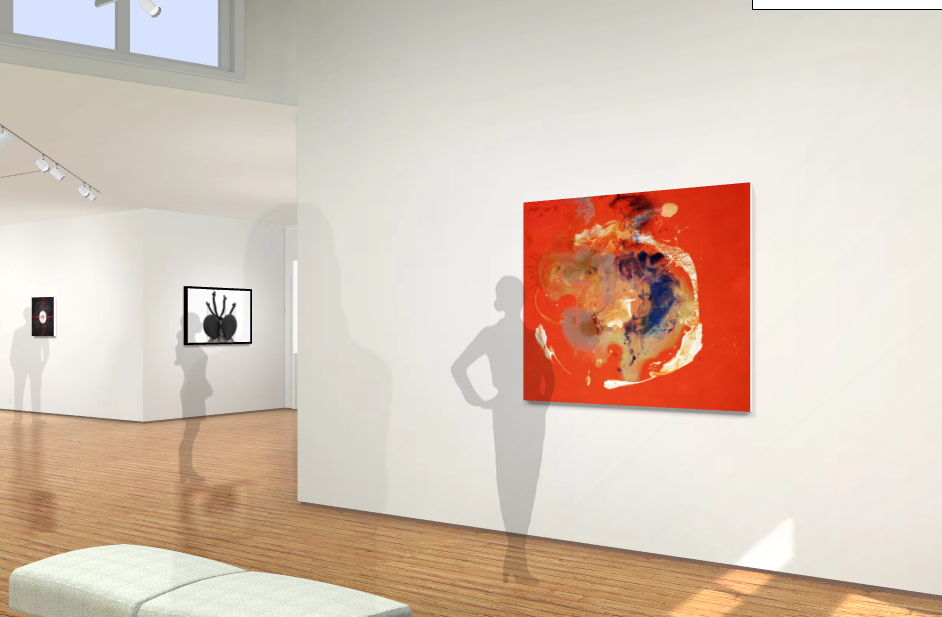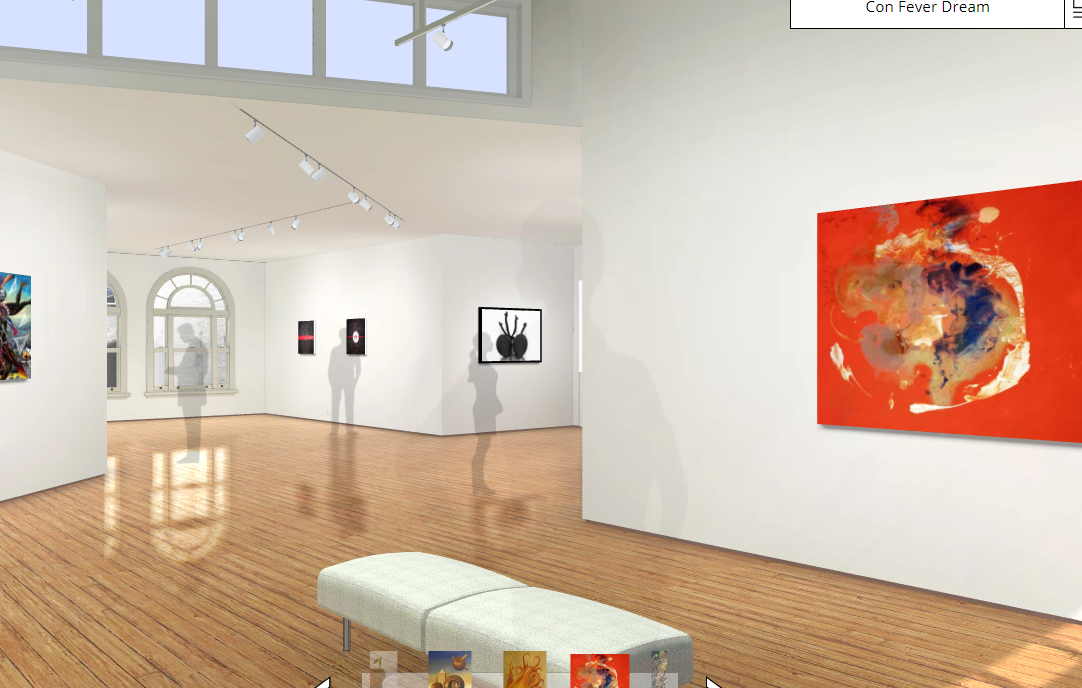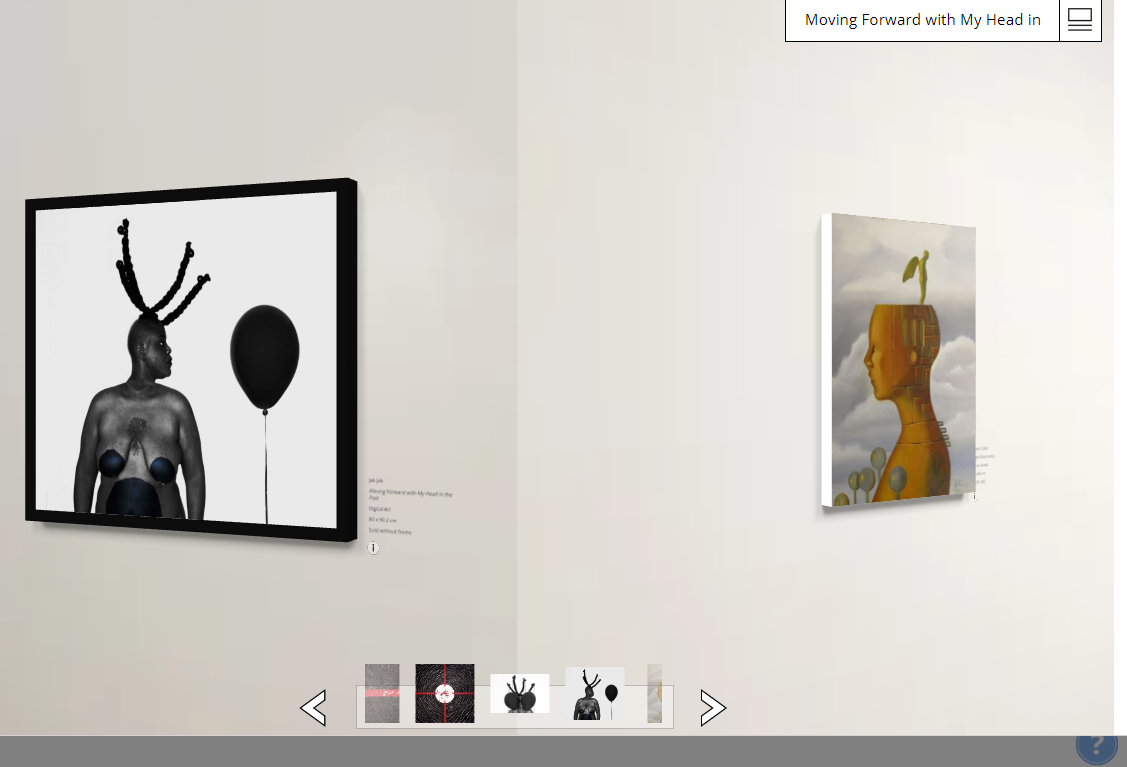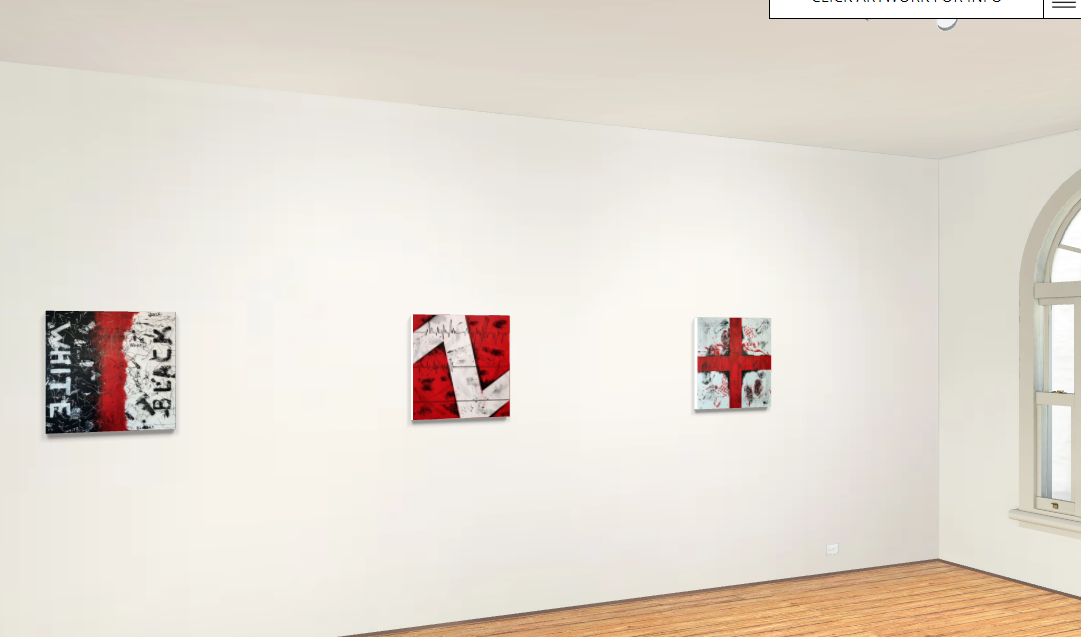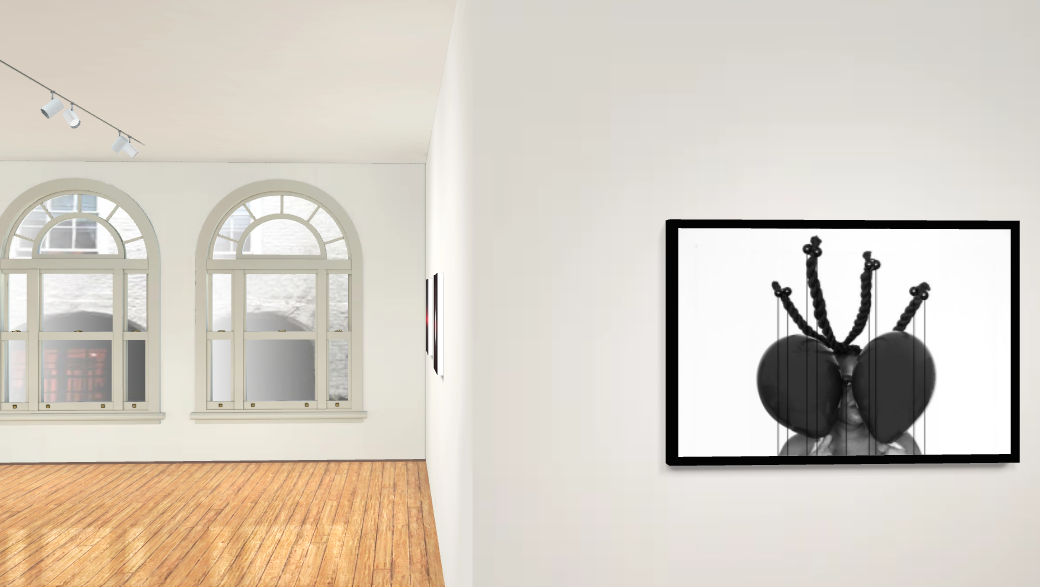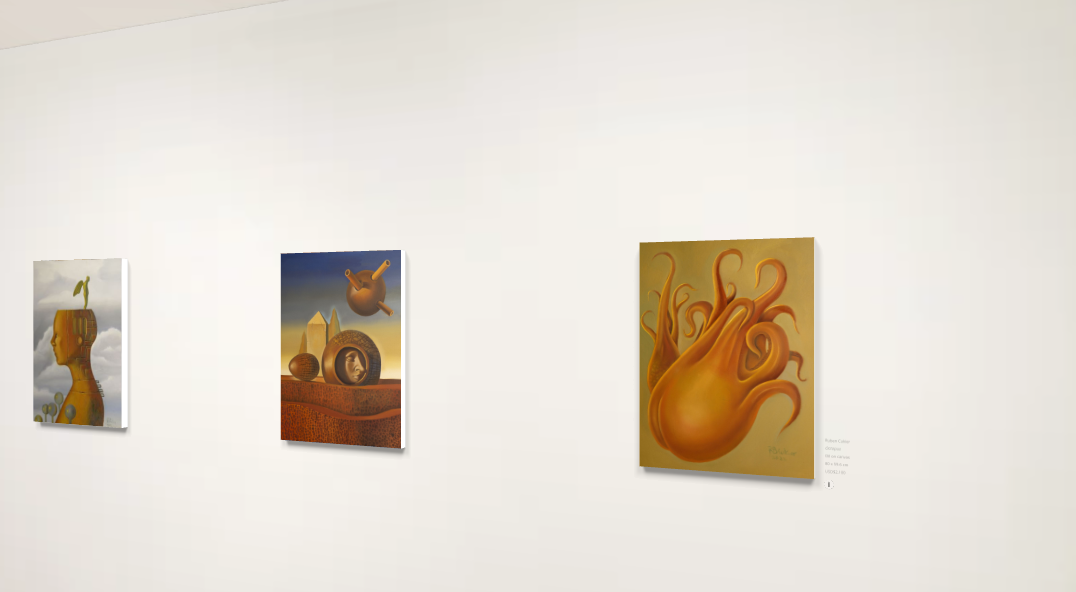COLLECTIVE DREAMS
VIRTUAL EXHIBITION
Images from the Exhibition
10th June - 7th July 2022
About COLLECTIVE DREAMS
Collective Dreams, the present online exhibition at ─█▓▌╔½ŪķŲ¼, cultivates a process to unravel a few common metaphorical junctions among five selected artists working with diverse styles and intentions.
The exhibition maps personal, timely and especially nuanced styles as well as methods of visual expression by the artists.
The genre of artworks varies from surreal to abstract but narrates identical angst or fervour of illustrating (not literally but essentially) their dreams, whether real or rhetorical.
Have these dreams become mobilised by what Carl Jung explains the term ŌĆśarchetypesŌĆÖ? Or is there an attempt in signifying the latent as mentioned by Sigmund Freud?
The common aspects of signifiers or signs like colour, text, and form, whether in a surreal or abstract manner, function in an archetypal manner thereby denoting the common ground of socio-political-cultural sentiments.
Anatolli KazymyrchukŌĆÖs paintings, contextualised images in Jak Jak and Kevin Lawlers representations, surreal scapes by Ruben Cukier, and abstracts by Silvana Abram assimilate to curate a package of political oneness.
Why political?
The empowered oneness by the charged tools ideologically authorises the conduct of personal dreams, historical (in the case of Lawler) , cultural (like Cukier) and present ( probably Abrams abstract). This collective psyche constitutes a collective range of illusions, delusions and latent psychological movement.
Collective Dreams not only attempt at representing the latent suppressed desires but also rebuilds the newer idea of consciousness that more than being utopian stems from the chord of quasi-realistic sensibilities.
-
More information about the artists:
-
Curated by Claudia Elliott
Founder of ─█▓▌╔½ŪķŲ¼.
-
Urvi Chheda holds Masters in Visual Art in Art History and Aesthetics from MS University of Vadodara, India.
Graduated from Sir JJ School of Art, Mumbai, she is presently researching on site-specific art, questioning the artistic autonomy.
At the same time, she is interested in the meme-making process, which, she believes, is slowly becoming a significant part of formal representation.


